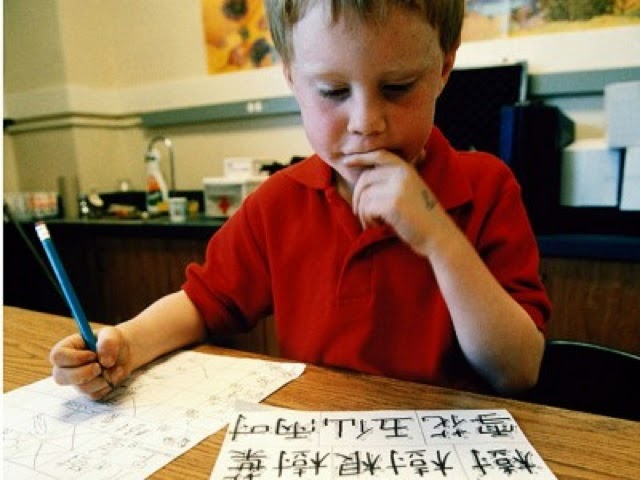- Choose a Dialect – There are many dialects of Chinese, with Mandarin and Cantonese being the most popular. Before you ever give your little one her first Chinese lesson, you’ll need to determine which dialect you’ll be pursuing. Among native Chinese, those who speak Mandarin generally understand very little Cantonese, but most that do not speak Mandarin primarily are able to communicate with varying degrees of fluency in Mandarin, as it’s been the official language of China since 1913. The one commonality between all Chinese languages is a shared system of writing and characters
- Learn Chinese – Chinese languages can be somewhat difficult for an adult with no previous exposure to master, but being able to grasp basic vocabulary words and sentence structure will make the process far easier for your toddler. Unless she’s fortunate enough to have consistent exposure to spoken Chinese on a regular basis, your child may learn incorrect pronunciation and grammar without the guidance of a fluent parent. Because your toddler is just beginning to grasp the concept of language as a whole, you can make learning Chinese an activity that you do together.
- Entertainment Can Be Education – The current emphasis on reducing kids’ screen time is a completely valid argument, as the American Academy of Pediatrics recommends tightly regulating small children’s exposure to television and eliminating it altogether for children under the age of two. Language-learning videos, however, can be a very useful tool for teaching your child a complex second language; provided that her educational screen time is limited and her physically active play isn’t limited, letting your little one learn by watching can be a very effective method of passing on second language skills.
- Understand the Power of Immersion – For kids and adults alike, one of the easiest methods of learning a second language is to be as immersed in it as possible. This means that Chinese language and vocabulary should be integrated with the English lessons you share as part of daily life so that your little one can associate two words or phrases with one object or concept. If you don’t speak a Chinese dialect and have no plans to do so, hiring a nanny or caregiver that’s fluent in conversational Chinese can help to create an environment for your child that fosters the acquisition of a second language alongside her first
- Be Realistic – Chinese is a vastly different language from English. It sounds different, is written in completely different characters, and varies from one region of China to another. Your toddler is still in the process of learning to grasp the basics of her first language; don’t expect her to rattle off complete, conversational sentences in Chinese before she can do so in English.
- Consider the Toddler Years Preparation – The number of public schools that offer classroom Chinese instruction has increased dramatically, meaning your child is much more likely to attend a school with Chinese language classes than she would have been a decade ago. These classes will refine the skills that you’re building a foundation for, so treat her formative linguistic years as preparation for the more structured instruction that she’ll receive later.
Good luck!





























